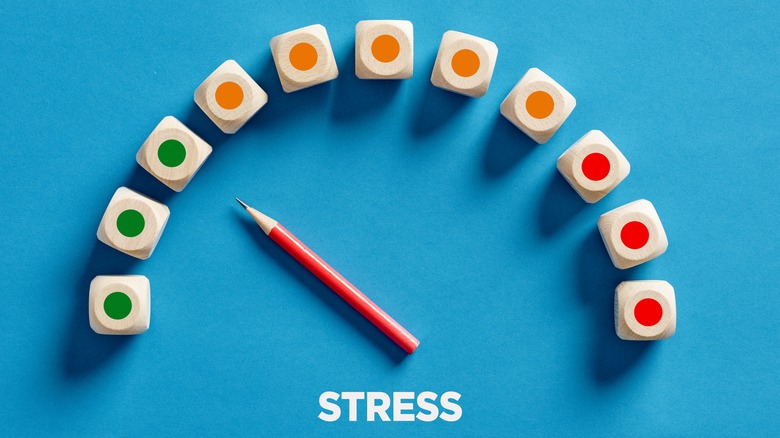Can Certain Types Of Stress Be Good For You?
Stress affects all of us at various points in our lives. Even if we don't admit we're under stress, our bodies often let us know. Our muscles tense up, we experience headaches, our digestion seems off, or we just feel exhausted (per American Psychological Association). Even though we're encouraged to manage chronic stress, a low amount of stress might make us more adaptable throughout our lives.
According to a 2022 study in Psychiatry Research, periods of adversity can make you more resistant to mental health issues. The study measured perceived stress, mental health symptoms, and cognitive skills in more than 1,200 young adults. It found that those who had low-to-moderate levels of stress were less likely to suffer from mental health symptoms. Further, those who performed well on cognition and attention tests were better at not internalizing their stress.
In a press release about the study, Assaf Oshri, lead author and associate professor at the University of Georgia, compared low-stress levels to calluses on your hand. Calluses help protect your hand from future stress, but too much beating can damage your hand. "If you're in an environment where you have some level of stress, you may develop coping mechanisms that will allow you to become a more efficient and effective worker, and organize yourself in a way that will help you perform," Oshri said.
What doesn't kill you makes you stronger
The study relied on the concept of hormesis, which says that small doses of something harmful can protect us, according to a 2020 study in Comparative Biochemistry and Physiology Part A. It allows us to survive and perform, and it can help us become more resilient as we age. To a certain extent, exercise puts stress on the body to help us adapt.
A 2008 study in Cell Metabolism said that hormesis can be the key to improving public health. It's a matter of finding the right balance of stress in our lives to make us stronger. A 2010 study in the Journal of Physiological Anthropology said brief dietary restrictions, such as fasting, could be considered a mild stressor to improve our health. A 2022 study in BMJ Nutrition, Prevention & Health suggested that periodic fasting could help prepare the body against infection.
This doesn't mean you should drop your stress management routines such as meditation and getting enough sleep. It's about recognizing how much stress we can handle at a time. "Most of us have some adverse experiences that actually make us stronger," Oshri said. "There are specific experiences that can help you evolve or develop skills that will prepare you for the future."


